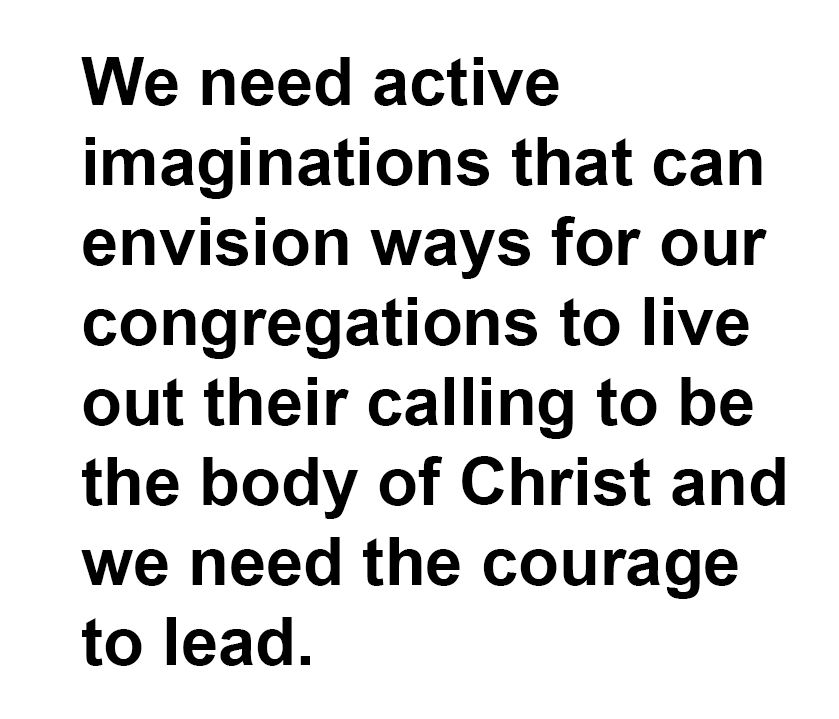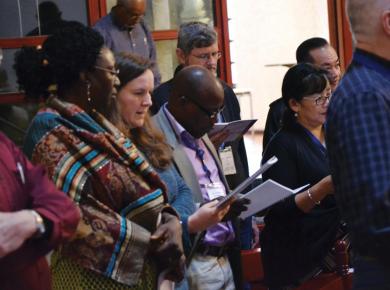Posted: June 20, 2018
In the 16th century, some of the greatest theological minds of that era began to read the Bible in new ways. The text itself hadn’t changed, but because of their experience in the Roman Catholic church, their own study of Scripture and the work of the Holy Spirit in their lives, they began to develop a new understanding of God’s grace and free offer of salvation.
Among those who were committed to reforming the church were those who wanted a more radical reform of theology and practice and who longed to restore the kinds of communities described in the New Testament. These were the men and women who became known as the Anabaptists. Many of them lost their lives because of their witness to a new way.
Disciples of Jesus
Early Anabaptists were radical Bible readers at the core. They understood the reign of God to be centred in the church rather than the state, and believed that the body of Christ was to give visible witness to its proper citizenship. They saw themselves as present-day disciples of Jesus and because of that, they gave special weight to Jesus’s teaching – to his invitation to live generous lives, to his call for love of enemies, to his encouragement to participate in God’s work of healing and justice and hope. They formed voluntary churches based on an adult confession of faith. They practiced mutual aid. They practiced church discipline.
As spiritual descendants of those early radicals, these ideas have informed our theological tradition and our church practices. But, nearly 500 years later, we live in a very different context. Separation between church and state has morphed from a theological idea about proper allegiances, to, in my American context, a political idea embedded in a constitution.
Old enemies, church bodies that persecuted early Anabaptists, are now brothers and sisters in common endeavors such as mission enterprises, community development projects, health and human service ministries and educational programs.
We continue to witness the demise of Christendom, a political and cultural reality that privileged Christianity, but also invited – indeed, welcomed – compromise. In its place is an increasingly secularized society and an increasingly secularized church.
Radical Bible reading again
Nevertheless, our day also calls for radical Bible reading in the spirit of the early Anabaptists. The text hasn’t changed, but the times we live in have. They call us to re-engage with God’s Word and with our own theological tradition to see how it can offer us wisdom for living as Christians in our world and for engaging in mission that invites all people to become followers of Jesus and children of God.
Active imagination and courage to lead
Anabaptism is as needed in the 21st century as it was in the 16th century. The question of allegiance – to God or to the state – has not gone away. For those of us living in the USA, with its strong military power, the temptation is especially strong to rely on the state for protection.
We have grown used to our privileges. In my context, we struggle with an increasingly secularized society and its impact on the church. We have grown comfortable in the world. It is sometimes difficult for us to resist the lure of a consumer society – to live lives of simplicity and generosity. Sadly, even in our own tradition we find ourselves fighting over theological differences rather than joining together to proclaim the message that Jesus does indeed save, and that through him, people and communities can be transformed.
We need active imaginations that can envision ways for our congregations to live out their calling to be the body of Christ and we need the courage to lead. The Bible still speaks to these things.
De-centring Anabaptism
Something else has changed. For centuries, Anabaptism as a theological movement was primarily lodged within the historic Mennonite and Anabaptist church traditions. Today, however, Anabaptism is being embraced by a diverse group of Christians who are linking together in networks rather than denominations and who are discovering each other through publications and websites. Christians around the globe have discovered the biblical ideas that gave birth to the early Anabaptist movement and are trying to live them out in their own faith communities.
These neo-Anabaptists, or “naked” Anabaptists to use Stuart Murray’s term, often remain embedded in their own church traditions, but are drawn to the theological orientation and practices that have long characterized Anabaptist communities. It is exciting to live in a time when “old” and “new” Anabaptists are coming together to explore, to study, to learn from each other and to spur each other on to love and good deeds. This gives me hope for the church and for the world.
It is important, I think, to read the Bible through the lens of Anabaptist thought and practice not simply to recover the past, or to honour our spiritual ancestors, but so that we might live faithfully as 21st-century followers of Jesus. May God grant us the courage of those early radical reformers.
—Valerie G. Rempel is a professor at Fresno Pacific Biblical Seminary, Fresno, Cal., USA, and a member of College Community Church.
This article first appeared in Courier/Correo/Courrier October 2017


Comments: